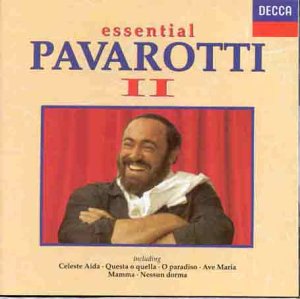(#430: 10 August 1991, 2 weeks)
Track listing: Questa o quella/Recondita armonia/Brindisi: Libiamo ne' lieti calici/Amor ti vieta/Mi batte il cor....O Paradiso/Se quel guerrier io fossi...Celeste Aida/Ch'ella mi creda/Donna non vidi mai/Pourquoi me réveiller/O soave fanciulla/Marechiare/Ave Maria/La Serenata/Panis angelicus/In un palco della Scala (with apologies to Pink Panther)/Caro mio ben/Mamma/Nessun Dorma – live version
My mother died on 19 May 2019. She was eighty-six years old and had been for some time been unwell. For the last few years of her life she was in a care home. I had not seen her since May 2017 due to my own major health issues and indeed was unable to travel to Scotland for her funeral, because I had been forbidden by my doctors to do so. I did contribute some written thoughts and words, which seemed to go down well with the friends she had up there.
I suppose, if nothing else, that I am relieved that my mother “got out in time.” There was no way in which she would have been able to cope with the pandemic, particularly given the multiple issues to do with care homes. That decline I would have found intolerable.
As you might expect, I thought about my mother a lot while listening to this second Pavarotti compilation. Like its predecessor, it offers a mixture of well-known arias and ariettas, Neapolitan folk songs, hymns and the odd novelty. The rendition of “Nessun Dorma” included here was recorded during a “Gala Concert” at the Royal Albert Hall in April 1982, to a palpably hugely receptive audience – it was the tenor’s first concert performance in London - and although the aria is taken just a little too quickly, the spiritual and emotional connections are deeply perceived, and indeed are not new to this tale in terms of time and place.
Pavarotti’s popularity had obviously escalated over the preceding twelve months, as evinced by the rather breathless liner note to this album, written by the Scottish broadcaster Nicky Campbell – now a mainstay of the BBC talk station 5 Live, but back then a late-night DJ on Radio 1, and it is good that Decca took the opportunity to introduce new listeners to some less obvious gems. There are, of course, familiar setpieces, such as “Questa o quella” (thoughts of a rakish womaniser, not too far away from Kid Creole’s “(I’m A) Wonderful Thing (Baby)”), “Recondita armonia” (Cavaradossi paints Mary Magdalene and thinks of Tosca, his soon-to-be lover, while doing so) and “Libiamo” (with Dame Joan Sutherland, making her sole appearance in Then Play Long, as a vivacious foil). The folk songs are by turns bumptious (“Marechiare”) and affecting (“La Serenata”); in contrast The Pink Panther-quoting romp was conceived and conducted by Henry Mancini himself and offers some much-warranted light relief.
Much-warranted because, in places, this is highly exacting music. As with Seal, Pavarotti is even more effective when he turns the volume down and the intensity up. The sequence lasting from Meyerbeer to La bohème is almost meditative in its unshakeable, but not inactive, quietude, and the recitatives from Manon Lescaut and, especially, Werther, are profound labyrinths of meditative dread, with the echoes of other voices lucidly placing themselves in the protagonists’ doomed dreams (Mirella Freni makes an excellent Mimi). Both “O Paradiso” and “Ch’ella mi creda” are sung by men on the literal point of bloody death by execution. In such a context, “O soave faniculla” is particularly affecting, since it depicts love as finally reciprocated. On a spiritual level, Pavarotti’s “Ave Maria” (Schubert) and “Panis angelicus” (Franck) are intimately moving performances, their wider implications straying beyond the boundaries of “music.” My mother, who knew nothing about coolness or catalogue numbers or who played fourteenth tambourine on which Beatles outtake but knew most things about how to live, understood Pavarotti entirely and profoundly.



